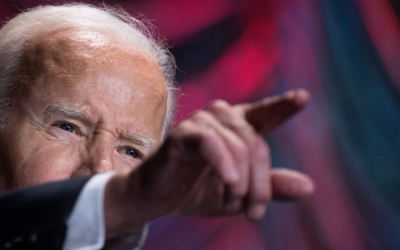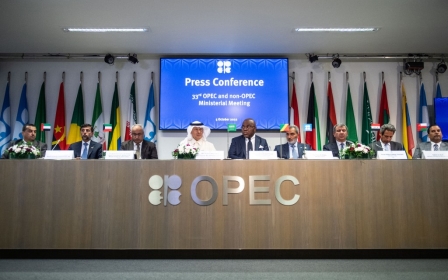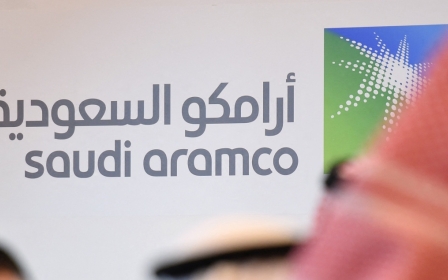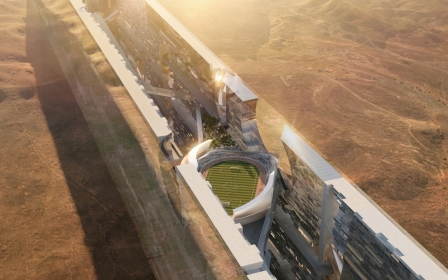Saudi Arabia snubs US officials ahead of 'Davos in the Desert'
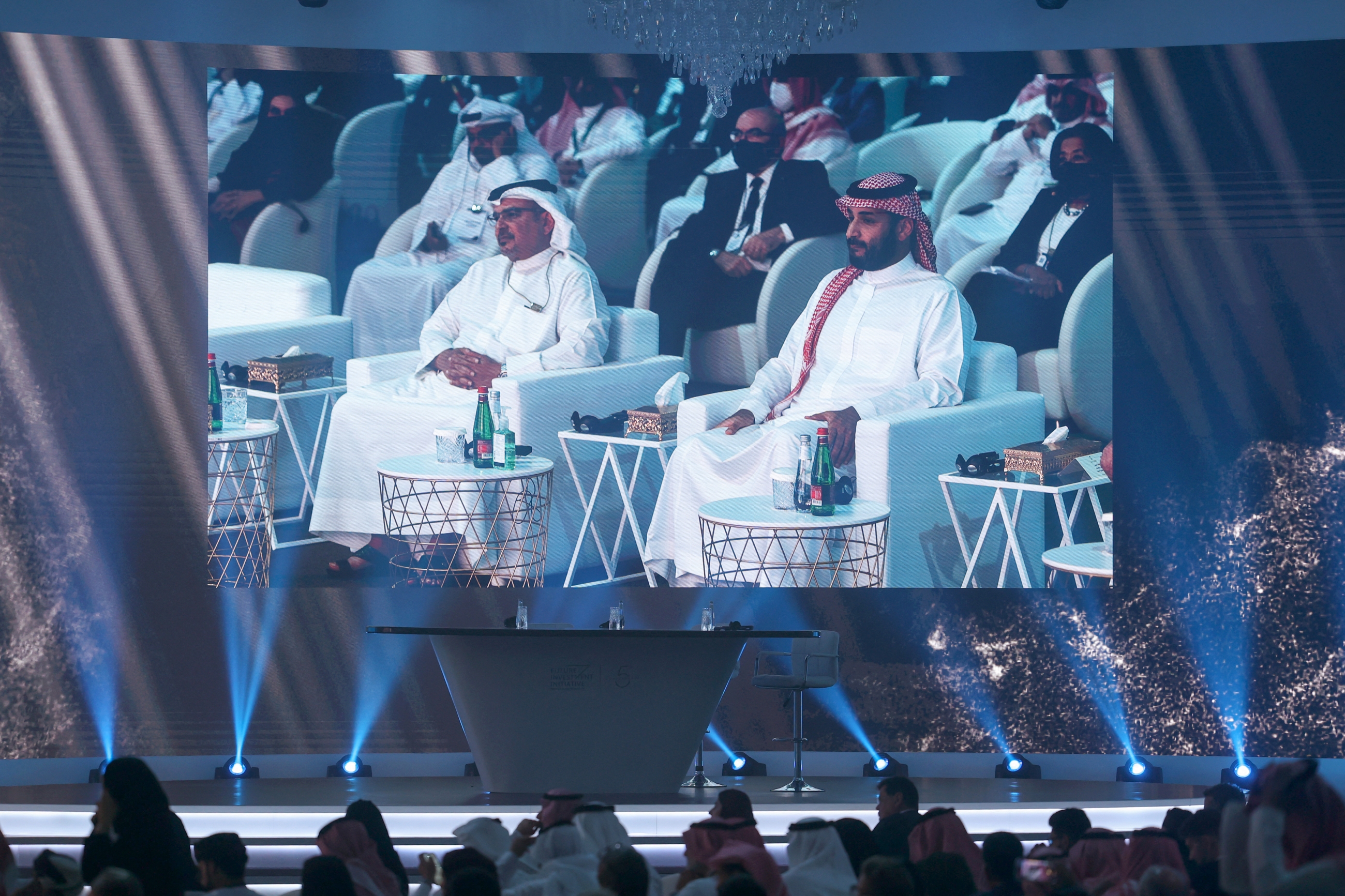
US government officials have not been invited to a Saudi investment conference planned for later this month, with the organiser saying they did not want the gathering "to become a political platform".
The decision not to invite American officials, a departure from previous years, comes as tensions rise between longtime partners Washington and Riyadh over the Saudi-led OPEC+ cartel's recent vote to cut oil production by up to two million barrels per day from November.
The Future Investment Initiative (FII), a three-day conference set to begin on 25 October in Riyadh, typically draws Wall Street titans and high-ranking officials from around the world. And up to 400 American CEOs are expected to participate this year, said Richard Attias, CEO of the group behind the event.
It is often referred to as "Davos in the Desert".
Saudi Arabia has in recent days rejected US accusations it has aligned itself with Russia amid the Ukraine war by making oil production cuts to drive up crude prices, insisting it was purely a business decision.
In a speech broadcast on Sunday night, Saudi King Salman insisted his country was "working hard, within its energy strategy, to support the stability and balance of global oil markets".
Steven Mnuchin, who served as treasury secretary under former US President Donald Trump, addressed FII during its debut in 2017, though he pulled out the following year amid global outrage over the killing of Washington Post and Middle East Eye journalist Jamal Khashoggi.
Last year's event was attended by Don Graves, deputy commerce secretary under current US President Joe Biden.
Asked about US attendance this year, Richard Attias, the conference organiser, told AFP: "We didn't invite any US government" figures.
'Not doing politics'
"We are not inviting too many politicians... because I realised that when you have political leaders on stage, the attention of the media, let's be very frank, is diverted to the political agenda, and we don't want FII to become a political platform."
The decision follows a move by the Biden administration last week to cancel a meeting with Saudi Arabia which would have focused on integrated air and missile defence. Several US lawmakers within Biden's Democratic party have also called for suspending military sales and cooperation with Riyadh.
The FII Institute, headed by Attias, is not formally affiliated with the Saudi government, but the annual conference in Riyadh is closely associated with Saudi Crown Prince Mohammed bin Salman, the kingdom's de facto ruler.
Attias said he did not expect the Riyadh-Washington spat to affect this year's FII conference, adding that he was seeing “more and more appetite from the US private sector to attend FII”.
"We are not doing politics at all," he added.
Jamie Dimon, JPMorgan Chase’s chief executive, is listed on the conference’s website as a featured speaker.
In an interview with CNBC last week, Dimon called the global energy crisis “pretty predictable”. Instead of critiquing the Opec+ cut, the banker said the US response should be to increase its own oil production.
“America is the swing producer, not Saudi Arabia…America should have been pumping more oil and gas and it should have been supported,” since Russia’s invasion of Ukraine.
Dimon’s appearance at this year’s Davos in the Desert underscores how western business leaders have been charting a path to the oil-rich kingdom to capture a slice of its booming economy, brushing off criticism of Riyadh not just by Washington, but also by human rights groups.
Dimon's presence at Davos in the desert this year is notable because he was one of the most senior business leaders to boycott the event in 2018, following the killing of Jamal Khashoggi.
JPMorgan was one of the underwriters for the initial public offering of Saudi Aramco in 2020. This year the oil giant surpassed Apple as the world’s most valuable company amid rising energy prices.
Steve Schwarzman of the investment giant Blackstone, Ray Dalio of the hedge fund Bridgewater Associates, and Michael Arthur, Boeing’s top international executive, are also slated to attend this year’s Davos in the Desert.
Middle East Eye delivers independent and unrivalled coverage and analysis of the Middle East, North Africa and beyond. To learn more about republishing this content and the associated fees, please fill out this form. More about MEE can be found here.


